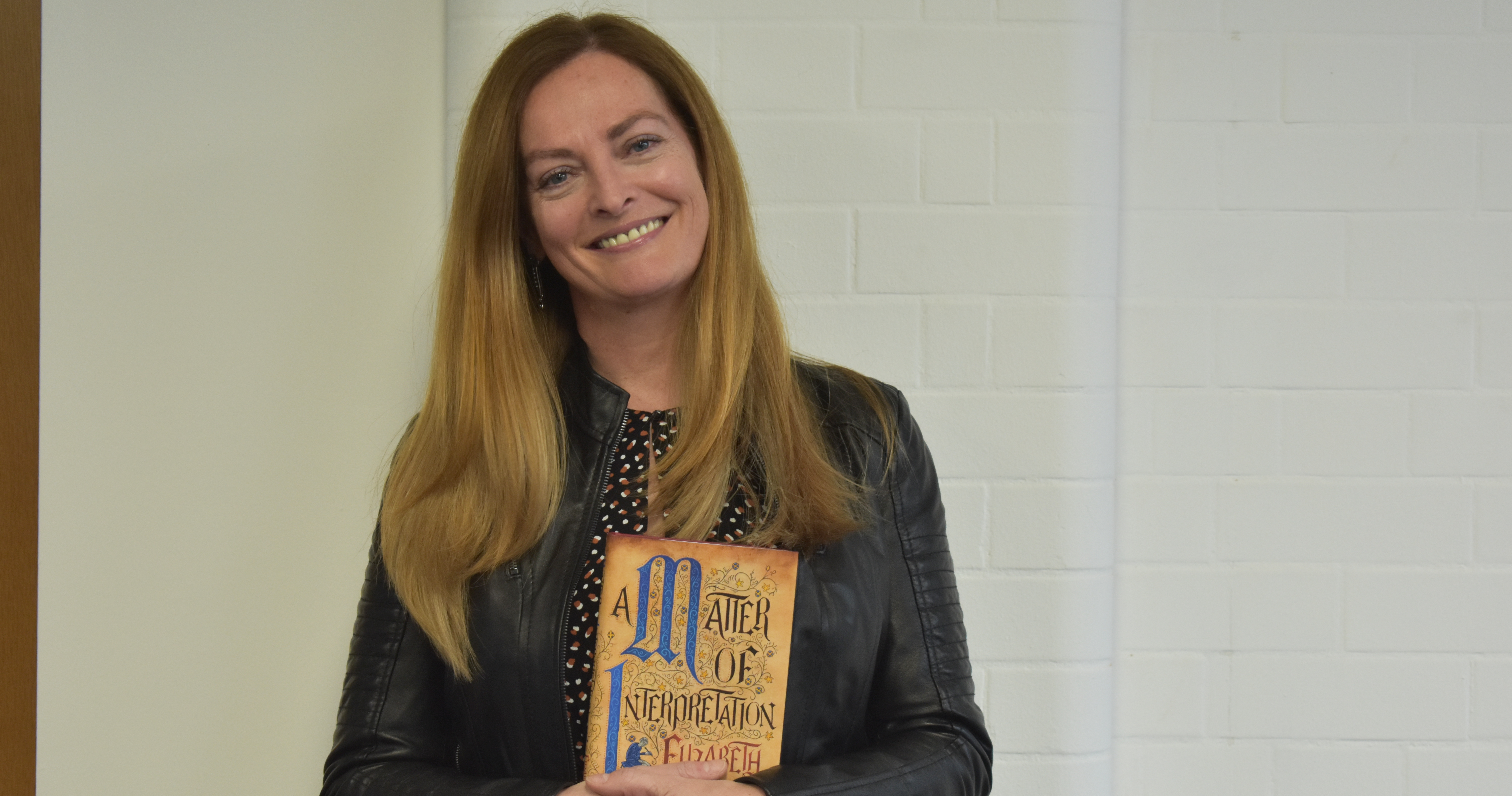Elizabeth Mac Donald

Elizabeth Mac Donald’s debut novel, A Matter of Interpretation, was published by Fairlight Books in September 2019.
Elizabeth was born in Dublin, where she studied Italian and Music at University College Dublin. She was awarded an Italian government scholarship and pursued post-graduate studies at the Univeristà del Sacro Cuore, ‘La Cattolica’, Milan. She then taught English at the University of Bari before moving to Pisa, where she still lives with her husband and son. In her spare time, Elizabeth sings in the choir of the Scuola Normale, Pisa.
Elizabeth’s translations of the short stories of Liam O’Flaherty were the first in Italy (Terre e scogliere d’Irlanda, Edizioni ETS, 1994). She has translated the poetry of Dermot Healy, Seamus Heaney, Brendan Kennelly and many others. Her collection of short stories, A House of Cards, was longlisted for the Frank O’Conner International Short Story Award.
A short Q&A with Elizabeth Mac Donald can be read below:
How did you start writing?
I’ve always been an avid reader, but my first love was music. I studied it at the conservatory (piano and singing) and at university. Then in my early twenties I moved abroad and the experience knocked me so far outside my comfort zone that I turned to writing as a way of filtering my life.
What does writing mean to you?
In the flux of the daily nitty-gritty of life, often so impermeable to any search for meaning, writing offers me a chance to pull a pattern out of this, to weave a web of significance and crystallise it, and then look back and say, ‘There, it’s true…’
How is non-fiction writing different from fictional writing?
Perhaps Jung’s four functions might be of help here. Non-fiction depends on the sensation function, which is the ability to identify concrete facts; this is completed by the rational function, which interprets them. In fiction, I feel that what Jung referred to as the feeling function – that is, the capacity to morally evaluate one’s experience – is crucial, allied with the intuition function, which channels the imagination and gives insight.
Read our full interview with Elizabeth here and her post about the importance of historical fiction here.















Twitter